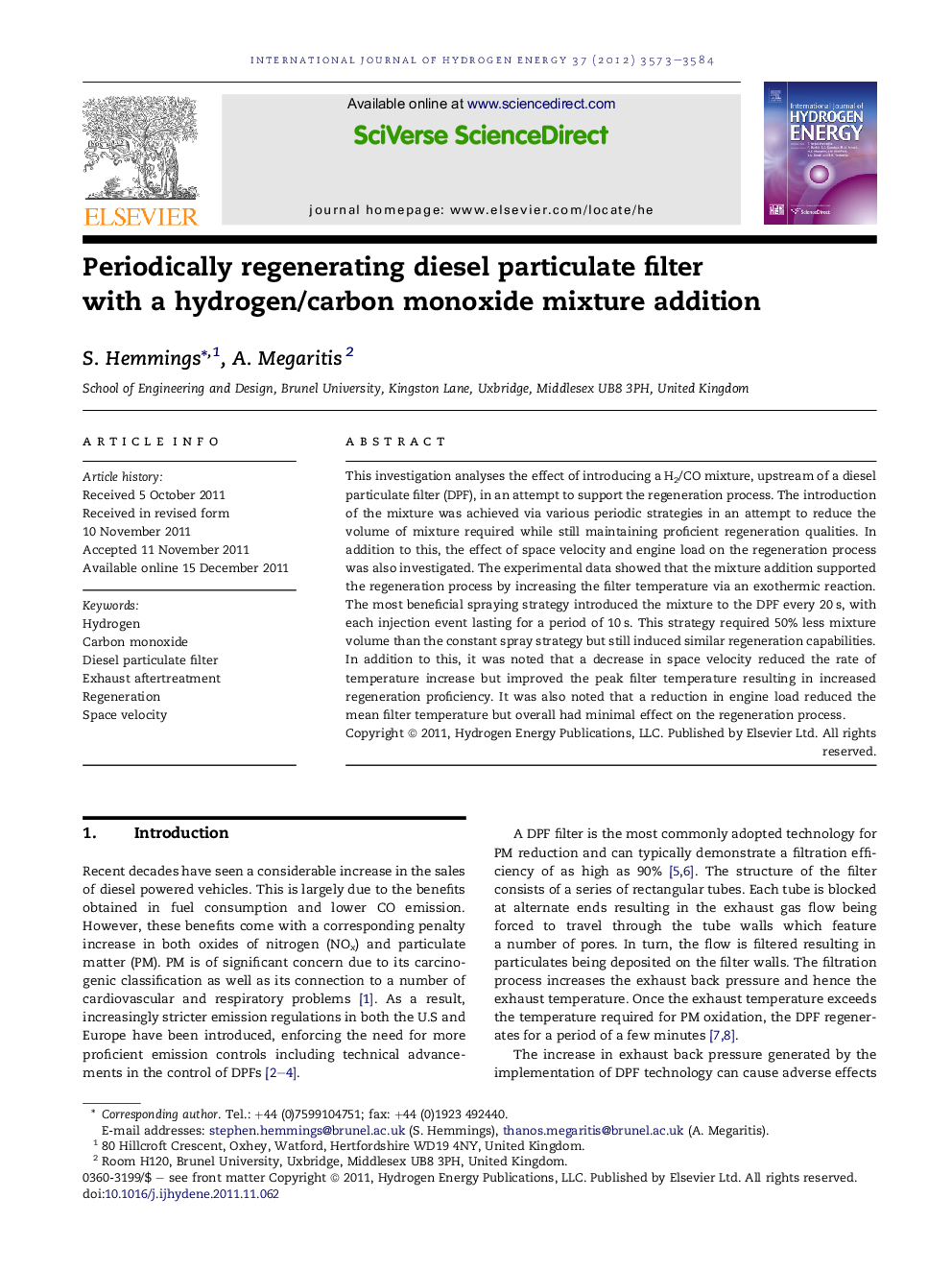| Article ID | Journal | Published Year | Pages | File Type |
|---|---|---|---|---|
| 1282365 | International Journal of Hydrogen Energy | 2012 | 12 Pages |
This investigation analyses the effect of introducing a H2/CO mixture, upstream of a diesel particulate filter (DPF), in an attempt to support the regeneration process. The introduction of the mixture was achieved via various periodic strategies in an attempt to reduce the volume of mixture required while still maintaining proficient regeneration qualities. In addition to this, the effect of space velocity and engine load on the regeneration process was also investigated. The experimental data showed that the mixture addition supported the regeneration process by increasing the filter temperature via an exothermic reaction. The most beneficial spraying strategy introduced the mixture to the DPF every 20 s, with each injection event lasting for a period of 10 s. This strategy required 50% less mixture volume than the constant spray strategy but still induced similar regeneration capabilities. In addition to this, it was noted that a decrease in space velocity reduced the rate of temperature increase but improved the peak filter temperature resulting in increased regeneration proficiency. It was also noted that a reduction in engine load reduced the mean filter temperature but overall had minimal effect on the regeneration process.
► Introduced H2/CO mix to the regeneration process of a diesel particulate filter. ► The effects of periodic and constant spray strategies were investigated. ► Optimised strategy featured a 10 s on, 10 s off spray cycle. ► Decreasing space velocity increased regeneration quality for all strategies. ► Reducing engine load demonstrated minimal effect on the regeneration quality.
